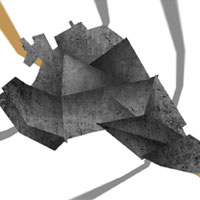20 years in anticipation of justice and recognition
 On Sunday, March 24, it was 20 years since the systematic campaign of ethnic cleansing and violence against Kosovo Albanians, carried out by the armed forces of the Serbian army and police during the NATO intervention in the Federal Republic of Yugoslavia (FRY), began. The Humanitarian Law Center (HLC) calls on the institutions of the Republic of Serbia to ensure justice for victims of crimes in Kosovo, prosecuting all those responsible, regardless of their position at the time of the commission of the crime, or within the current hierarchy of power. And it calls for public recollection of their suffering.
On Sunday, March 24, it was 20 years since the systematic campaign of ethnic cleansing and violence against Kosovo Albanians, carried out by the armed forces of the Serbian army and police during the NATO intervention in the Federal Republic of Yugoslavia (FRY), began. The Humanitarian Law Center (HLC) calls on the institutions of the Republic of Serbia to ensure justice for victims of crimes in Kosovo, prosecuting all those responsible, regardless of their position at the time of the commission of the crime, or within the current hierarchy of power. And it calls for public recollection of their suffering.
According to the HLC and the HLC Kosovo data, between March 20 and June 14 1999, Serbian forces killed 6,872 Albanians in Kosovo. The International Criminal Tribunal for the former Yugoslavia (ICTY) established that over 800,000 Albanian civilians were deported, that an unspecified number of people were subjected to torture and sexual abuse, and that a significant part of Kosovo Albanian property and religious buildings – were destroyed.
Crimes against Kosovo Albanians were carried out systematically and daily. On just one day, March 26, 1999, almost 700 civilians were killed in Mala Kruša, Suva Reka, Landovica, Celina and other places. In mass executions, women, children and elders were also killed. Their bodies were burnt, thrown into wells, or hidden in secret locations. Mass graves have been discovered on the territory of the Republic of Serbia, with 941 bodies of Albanians killed in Kosovo in 1999. In Batajnica, on the outskirts of Belgrade, 744 corpses of Kosovo Albanians were discovered; at least 61 bodies were found in Petrovo Selo; mass graves with 84 bodies were found at Lake Perućac; and at least 52 bodies were discovered in the mass grave in Rudnica.
The ICTY, in the verdicts in connection to the Šainović et al. and Djordjević Cases, established the existence of a state plan aimed at expelling a significant number of Kosovo Albanians in order to ensure lasting Serbian control over Kosovo. The existence of a plan was determined, inter alia, by taking into account the application of a uniform matrix of crimes, the impunity for the crimes committed, and the destruction of Kosovo Albanian identity documents at the crossings into Albania.
The trials before the courts in Serbia still do not reflect the scope and character of the crimes committed against Kosovo Albanians. Specialised judicial procedures and courts of general jurisdiction have so far processed crimes relating to only 200 victims. The failure to process high-ranking military and police officers, in whose zones of responsibility thousands of Albanian civilians were killed, or whose subordinates conducted organised and coordinated actions of expulsion, murder, robbery and concealment of civilian bodies, is also very evident. With the exception of two indicted lower-ranking military officers (Ćuška and Trnje Cases), and one medium-ranking police officer, who was finally acquitted (Suva Reka Case), only persons at the lowest levels of the military and police hierarchies have been brought before the courts. There have also been no legal procedures against the most massive crimes committed during the campaign of the Serbian military and police forces during the NATO intervention, such as the crimes in Meja, Korenica, Mali and Velika Kruša, Pusto Selo and Celine, in which over 800 Albanian civilians were killed. There have not been any trials for crimes committed during 1998, in which more than 1,000 civilians were killed. Also, until now nobody in Serbia has been found responsible for the extensive operation to conceal the bodies of Kosovo Albanians in mass graves.
Sixteen years after the discovery of mass graves in Batajnica, Petrovo Selo and near Lake Perućac, and more than three years after the discovery of the mass grave in Rudnica, there are no signs at these sites that indicate that hundreds of corpses of women, children and civilian men who were killed in numerous mass crimes in Kosovo were found on these locations. Also, any public discourse about the crimes committed by Serb forces in Kosovo during the NATO bombing remains in the shadow of sensationalist manipulation of the number of NATO bomb victims, despite the research of the HLC and HLC Kosovo, that found that in the period from March 24 to June 12, 1999, a total of 754 people lost their lives as a result of the NATO bombing of the Federal Republic of Yugoslavia.
To date, the HLC has presented to the public a total of six Dossiers, presenting evidence on the participation of Serb forces in crimes against Albanian civilians during the Kosovo conflict (Ljubiša Diković, 549th Motorised Brigade of the Army of Yugoslavia, 125th Motorised Brigade of the Army of Yugoslavia, Operation Reka, Rudnica and The cover-up of evidence of crimes during the war in Kosovo: THE CONCEALMENT OF BODIES OPERATION). The Dossiers represent a call to war crimes prosecutors in Serbia to investigate the allegations contained in them, and to prosecute those responsible. To date, the OWCP has not issued any indictments for the crimes described in these Dossiers. Also, the HLC has submitted a total of 11 criminal charges to the OWCP since 2012 – in most cases, against high-ranking members of the army and the police, for whom there is evidence that the units they commanded committed crimes during the Kosovo conflict. Among other things, criminal complaints were filed for crimes committed in Mala Kruša, Landovica, Poklek and Goden. The only high-ranking member of the Yugoslav Army against whom the OWCP has conducted an investigation is Dragan Živanović, Commander of the 125th Motorised Brigade of the Army of Yugoslavia. However, in March 2017, the OWCP suspended the investigation. The HLC considers it is the OWCP’s obligation to prosecute high-ranking perpetrators for crimes committed during the Kosovo conflict, as well as for crimes in which a large number of civilians were killed.
In 2016, the HLC launched an initiative to establish a Batajnica Memorial Site, with the aim of establishing a memorial centre as a lasting sign of respect for the victims, and contributing to remembrance and spreading the truth about the crimes, so they may never be repeated. Hundreds of people have supported the petition for establishing the memorial, and during the next three months, the HLC will intensively collect new signatures of citizens’ support. However, the Initiative for the Establishment of a Memorial in Batajnica requires political commitment, and the determination to approach relations with Kosovo Albanians from the point of view of responsibility and recognition. Therefore, the HLC calls on the institutions of the Republic of Serbia to support this initiative and to become the example which will point to the way in which the relations between Serbia and Kosovo should develop in the future.







